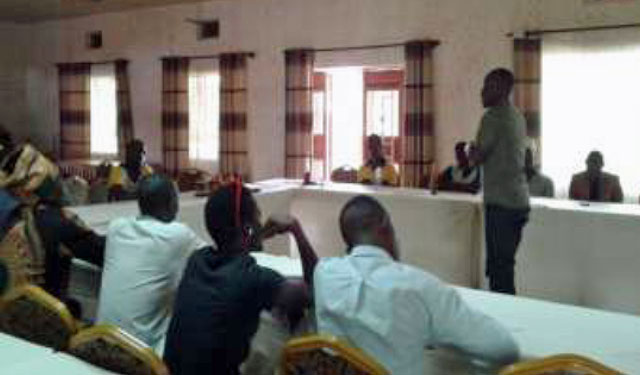In rural Uganda, 5 years of successes and challenges
Colin Stewart is a 45-year journalism veteran living in Southern…

Rainbow Health Foundation is celebrating its fifth anniversary as a champion for LGBTI people in western Uganda, advocating in particular for access to health services.
Its history is “a story of humble beginnings, a slow steady start, which soon kicked into gear, propelling it to soaring heights of service provision, fighting stigma and creating a world that accepts and tolerates diversity,” as RHF states in its newsletter.
Among its achievements since its founding in 2010, RHF noted:
- Growing from five members in 2010 to 230 today, with five full-time staff.
- Presenting workshops, seminars and training sessions for more than 140 members about security, legal aid, HIV /AIDS and communication skills.
- Establishing an office where members meet and access information. The office has a boardroom and resource centre equipped with journals, free wi-fi and educational materials.
- In partnership with others, publishing human rights violation reports in 2014 and 2015 under the Uganda Consortium.
- Launching an economic empowerment program to train youth in business skills and income-generating activities such as beekeeping and making crafts.
- Distributing condoms and lubricants, carrying out HIV awareness outreach programs, distributing informational brochures, and providing HIV testing and counseling for more than 250 people in the LGBTI, sex worker and general communities.
But the organization has also experienced setbacks and ongoing challenges. RHF cited in its newsletter:
- High levels of insecurity.
- Media outings.
- High rates of arrests and imprisonments.
One example occurred in January, when a mob pursued youths who had participated in HIV / STI screening at a mobile clinic. Police protected them from the mob, but then detained them for five days and subjected them to anal examinations before releasing them.
RHF said:
“The biggest challenge is that rural LGBTI face high homophobia, information is not readily available, and illiteracy levels are high.
“Societal factors like homophobia, rejection, and isolation by traditional sources of support like family, school and religious community in these areas has driven most young gay men and sex workers to despair and stigmatization, making them ignore the message of HIV prevention and behaviour change, as they don’t feel accommodated in the society.
“The majority of young gay men and sex workers in these towns are unemployed and very much economically disenfranchised.”
Looking to the future, RHF predicts that it will increase its membership to 400 in the next five years, while expanding its services. Among its aims are to open:
-

RHF crafts on display. (Photo courtesy of RHF) A well-equipped clinic for LGBTI people and sex workers — a first for the area.
- A youth training center and a Rainbow Crafts Centre that will train members in life skills and business skills, including money management, financial literacy and human rights.
- A research center, which will extend the organisation’s geographic reach.
Currently, RHF is conducting a survey of LGBTI people in western Uganda. This research will help the organization understand the area better and provide guidance in selecting appropriate services to offer.
Next month, RHF plans to launch a music and dance group that will promote LGBTI people’s talent and convey messages of acceptance and tolerance.
To support RHF’s efforts financially, use PayPal to send contributions to donate2rhfm@gmail.com.
Related articles
- Uganda: 9 gay men threatened by mob, arrested by police (January 2015, 76crimes.com)
- Rural Uganda: 9 gay youth still on the run; anyone care? (March 2015, 76crimes.com)
- Uganda activists fear harsh HIV law will boost AIDS (76crimes.com)
- Uganda: Setback for anti-gay group, but also for AIDS fight (76crimes.com)



